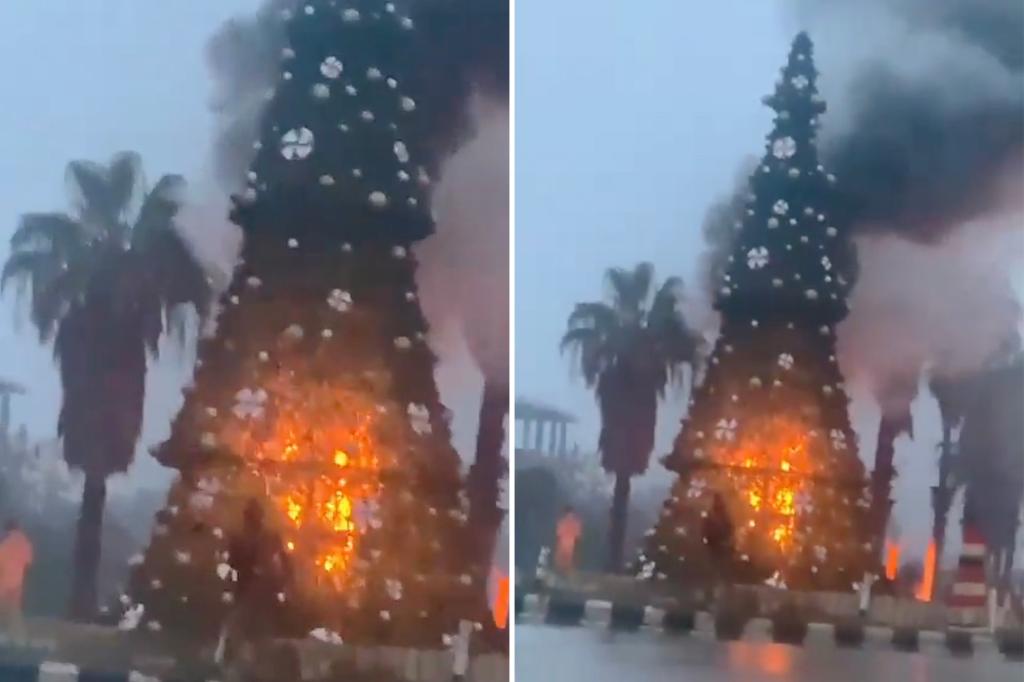The arson attack on a Christmas tree in the Christian-majority town of Skyrabiya sparked protests across Syria and fueled fears about the future of religious minorities under new Islamist leadership.
Days before Christmas Eve, a video of masked men setting fire to a tree in the town’s central square was leaked on social media, sparking anger and fear among Christians.
Hayat Tahrir al-Sham (HTS), the group that ousted President Bashar al-Assad’s regime, blamed the incident on foreign fighters and said they had been detained.
But the incident exposed underlying religious tensions and anxieties that have been smoldering since the recent regime change, with many saying the new leadership’s hardline Islamist ideology could threaten Syria’s religious pluralism. I am concerned.
Protests broke out in Christian areas across the country, including Damascus’s Qassa and Bab Touma districts, with demonstrators demanding protection for their rights and expressing fear about their future.
“Syria is free, non-Syrians should leave,” some shouted, underscoring concerns about the influence of foreign fighters.
Some carried crosses and Syrian flags and chanted: “We sacrifice our souls for the cross.”
“If we are not allowed to live our Christian faith in this country as we once did, then we no longer belong here,” declared one demonstrator named Georges.
In response to the growing unrest, HTS representatives immediately condemned the Christmas tree arson, vowed to protect the rights of all religious minorities, and promised to repair the damaged tree.
A video went viral showing HTS religious members assuring the crowd in Skyrabiya that the tree would be repaired and holding up crosses as a sign of solidarity.
Syria is a diverse country inhabited by Kurds, Armenians, Assyrians, Christians, Druze, Alawite Shiites, and Arab Sunnis, and the new leadership will navigate these complexities and support all groups. We need to foster a society where people feel safe and respected.
HTS started out as a jihadist group advocating violence to achieve its goal of establishing an Islamic state, but in recent years it has adopted a more pragmatic approach.
As fighters marched into Damascus earlier this month, leaders spoke of building a Syria for all Syrians.
However, despite signs of a potential diplomatic shift, the group remains listed as a terrorist organization by the United Nations, the United States, the European Union, and the United Kingdom.
The recent US decision to cancel a $10 million bounty on the head of HTS leader Ahmed al-Sharaa follows a meeting between senior diplomats and representatives of the group, which will see the group’s status reassessed. It suggests possibility.
Despite these developments, the presence of potential spoilers seeking to destabilize the country by attacking foreign fighters, Islamic extremists, and ethnic minorities remains a significant challenge.
The international community is closely monitoring the situation and is calling on the new authorities to take concrete steps to guarantee freedom of religion and belief for all.
The incident in Skyrabiya has cast a shadow over Syria’s Christmas celebrations, leaving many Christians feeling vulnerable and uncertain about their future.



